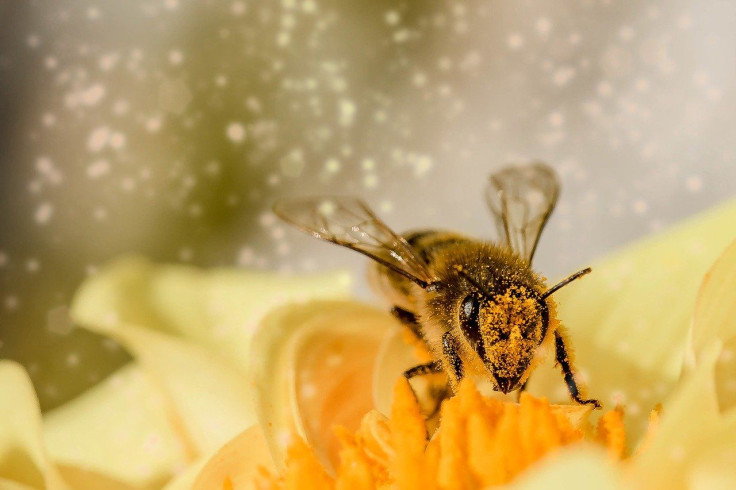Bees And Flies Have Sleep Problems Too And Pesticides May Be To Blame: Study
KEY POINTS
- Researchers found how pesticides may also have "sub-lethal" effects on insects
- Widely used neonicotinoids affect bees and fruit flies' sleep patterns and productivity
- This is problematic for the already declining pollinator numbers and crop yield
Neonicotinoids are the most commonly used pesticides in the world, and they have been shown to have negative effects even on beneficial insects such as bumblebees. In two studies, researchers describe another way that the pesticides can harm bees and fruit flies: by preventing the insects from getting a proper amount of sleep.
Humans need decent sleep, but factors such as stress can disrupt sleeping patterns and end up preventing people from functioning well. Insects may also be experiencing similar problems, and in the case of bumblebees and fruit flies, it is because of a widely used pesticide.
In two studies, both carried out by researchers from the University of Bristol, the researchers found that the use of neonicotinoids can actually affect how much sleep bumblebees and fruit flies get, thereby affecting their productivity.
In the fruit fly study, which was published in the journal Scientific Reports on Thursday, the researchers found that exposure to neonicotinoids had "lethal and sub-lethal" effects on fruit flies, finding how the pesticides can actually affect the insects' brains.
Apart from reducing the fruit flies' longevity and decreasing their eggs' viability, neonicotinoid exposure also reduced fruit flies' memory, caused fragmented sleep and disrupted the insects' circadian rhythms.
"Disruption of learning, circadian rhythmicity and sleep are likely to have far-reaching detrimental effects on beneficial insects in the field," the researchers wrote.
In the earlier bumblebee study, published in iScience, the researchers found that exposure to the pesticides resulted in reduced foraging activity. The bees also slept more in the day and foraged more at night.
"This could reduce foraging and pollination opportunities, reducing the ability of the colony to grow and reproduce, endangering bee populations and crop yields," the researchers wrote.

"The neonicotinoids we tested had a big effect on the amount of sleep taken by both flies and bees," the lead of the studies, Dr. Kiah Tasman of the University of Bristol, explained in the university news release. "If an insect was exposed to a similar amount as it might experience on a farm where the pesticide had been applied, it slept less, and its daily behavioural rhythms were knocked out of synch with the normal 24-hour cycle of day and night."
Simply put, apart from being lethal, exposure to neonicotinoids can also cause problems in insects' efficiency. This is problematic because a vast majority of crops depend on pollinators to thrive. As the researchers explained, about 35% of the world's crops and 84% of European crops depend on pollinators.
Unfortunately, pollinator numbers have been dramatically dropping, and the studies show that even the productivity of ones that survive is also being affected by being exposed to neonicotinoids.
"Bees and flies have similar structures in their brains, and this suggests one reason why these drugs are so bad for bees is they stop the bees from sleeping properly and then being able to learn where food is in their environment," Dr. Sean Rands, study co-author, said in the news release. "Neonicotinoids are currently banned in the EU, and we hope that this continues in the UK as we leave EU legislation."
In the U.S., some actions taken by the Environmental Protection Agency to protect pollinators include prohibiting the use of some neonicotinoid products when bees are around and launching the Pollinator Protection Initiative that aims to reverse the declining pollinator populations.
© Copyright IBTimes 2024. All rights reserved.





















